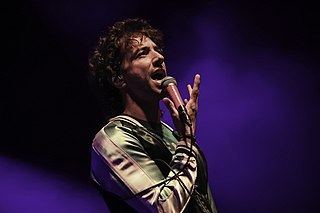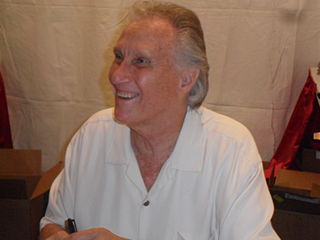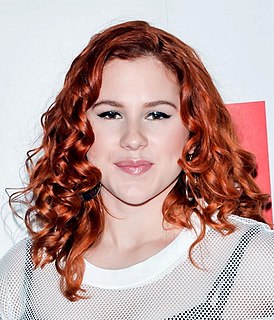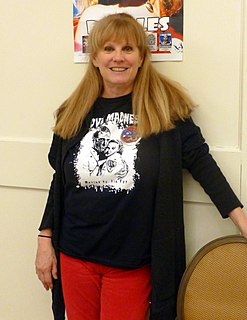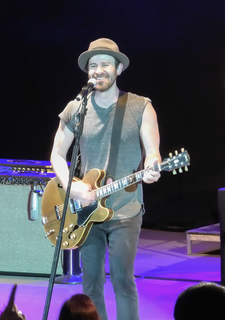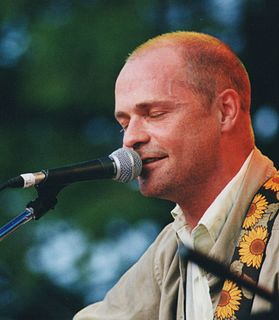A Quote by Yuna
I really believed that my songs were good enough for the whole world to listen to. I had fans from America or the U.K. who would be like, 'Oh my God, I love your music'.
Related Quotes
I hadn't played any music since freshman year of college, more than thirty years ago, so I had to relearn everything. I started writing songs. Some were dance and trance songs (I listen to them a lot while I'm writing), and some were love songs, because that after all is what music is about - dancing and trancing and love and love's setbacks.
That's what YouTube's become, it's become like a lot of vloggers capitalizing on this sort of like "My fans, I love my fans, hey guys." I've grown up and kind of been disgusted by that. I think it's using people, I think it's like encouraging something that's unhealthy, telling people you love them. "I love you." Oh really, you love your fans? You love the people that give you money and attention? Of course you do, that's not selfless that you love your fans, that's ridiculous.
I think from a major-label perspective, if you were on the flip side of things and that's the world you were used to working in, your interpretation could be, "Oh, they're having trouble writing songs," when really it's like, "No, I'm not ready to write songs, I don't want to write a song right now, if I did write a song, it would be forced."
The school systems at my childhood had enough money or enough parent involvement that they felt like learning music and songs, and exploring the whole pop or classical canon, were just as important as algebra or biology. Music is such a visceral and tactile experience for a kid, and to just replace that with video games or something that doesn't have the same sort of physical impact would definitely be a poor choice, and have a negative impact.
Not that anyone minds--no one's paying attention to the music. Most of them never really listen to music. Practically no one actually does. Even at concerts people pay good money for, instead of a three-dollar cover charge, they talk through the whole thing. I feel sorry for them, since none of them understand what it's like to have a song just get into your soul and become your whole world. They don't know what it's like when a song changes your life.
I did not initially take to the music of the Ramones, because I had never really heard of them before. Allan Arkush had given me a cassette of the Ramones and said, "You're their No. 1 fan, so I want you to know all of their songs and fall in love with these guys." I put the cassette on and I remember running around the house going, "Oh my God. That's music?"
Sometimes by a woodland stream he watched the water rush over the pebbled bed, its tiny modulations of bounce and flow. A woman's body was like that. If you watched it carefully enough you could see how it moved to the rhythm of the world, the deep rhythm, the music below the music, the truth below the truth. He believed in this hidden truth the way other men believed in God or love, believed that truth was in fact always hidden, that the apparent, the overt, was invariably a kind of lie.
Way back in the day, when I first started and had delusions of adequacy as a cartoonist, I would listen to music. When I switched to a career as a writer, I would try to listen to music, but if the songs had lyrics they would get in the way of the words I was trying to write. So I switched to listening to purely instrumental pieces.
I feel like there isn't as much mystery to music anymore. That could be a good thing or a bad thing. There definitely is no seperation anymore. Your connection with your fans is like two clicks away on a phone with a Twitter or a blog. I think that's a good thing. It's a new music industry. You're really connected with your fans.



